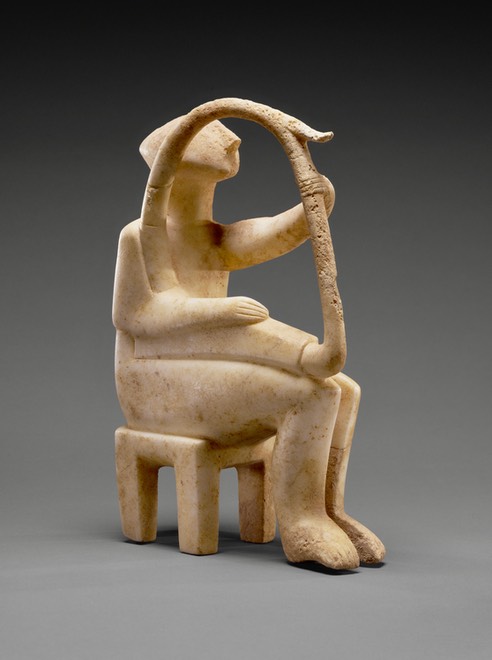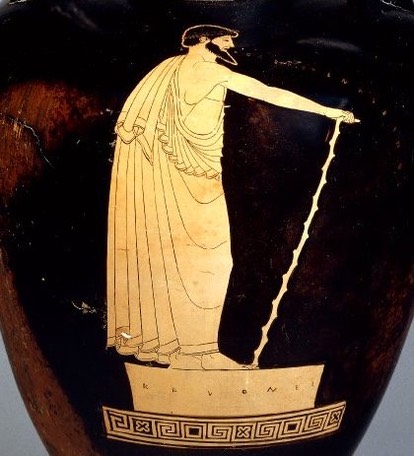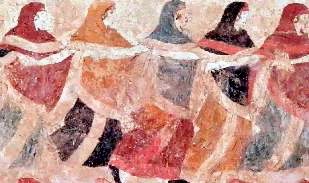Welcome to the Homeric Rhapsody podcast. The coming brief meditations will be renderings of Homer’s poem in Greek, following the historical theory of the Greek accent that I set it out in my book, The Dance of the Muses: Choral Theory and Ancient Greek Poetics, which was published by Oxford in 2006. After the Greek, there will be another impression by me, this time in English.
 The rhythm of the Greek verses originated in circle dance; certain scenes in Homer’s Odyssey describe this. But in the poems there is also solo performance with a stringed instrument, and the celebrated long narrative of Odysseus’ voyages, done by the hero himself without any musical accompaniment at all. The rhapsodes belong to the historical period: these were solo performers of Homer who declaimed in a theatre, draping a traveler’s cloak and wielding a long staff, no doubt flexibly, as a multivalent prop. Plato’s Ion is about Socrates’ conversation with an Homeric rhapsode, a professional, dimensional character. So there was more to Homeric rhapsody than the audio. Yet how remarkable and unique is Homer’s text, whose rhythm can still accompany a dactylic round dance, but unlike any other song lyrics known to me, becomes numinous as spoken poetry; these verses harbour moments of transcendent lyric, amid the potency of the greatest dramatic verse.
The rhythm of the Greek verses originated in circle dance; certain scenes in Homer’s Odyssey describe this. But in the poems there is also solo performance with a stringed instrument, and the celebrated long narrative of Odysseus’ voyages, done by the hero himself without any musical accompaniment at all. The rhapsodes belong to the historical period: these were solo performers of Homer who declaimed in a theatre, draping a traveler’s cloak and wielding a long staff, no doubt flexibly, as a multivalent prop. Plato’s Ion is about Socrates’ conversation with an Homeric rhapsode, a professional, dimensional character. So there was more to Homeric rhapsody than the audio. Yet how remarkable and unique is Homer’s text, whose rhythm can still accompany a dactylic round dance, but unlike any other song lyrics known to me, becomes numinous as spoken poetry; these verses harbour moments of transcendent lyric, amid the potency of the greatest dramatic verse.

The installments I shall perform follow the divisions of the text published at the Perseus site, http://www.perseus.tufts.edu/hopper/text?doc=Perseus%3atext%3a1999.01.0133. Select ‘view text chunked by’ line, rather than book. I believe this is the default setting. I have sometimes departed from their text where there are errors or worthy variants, or else an editor’s choice of punctuation alters the tonal profile. The listener is invited to follow along in the Greek, and then close his eyes for the English.
Ἴτε Χορευταί
